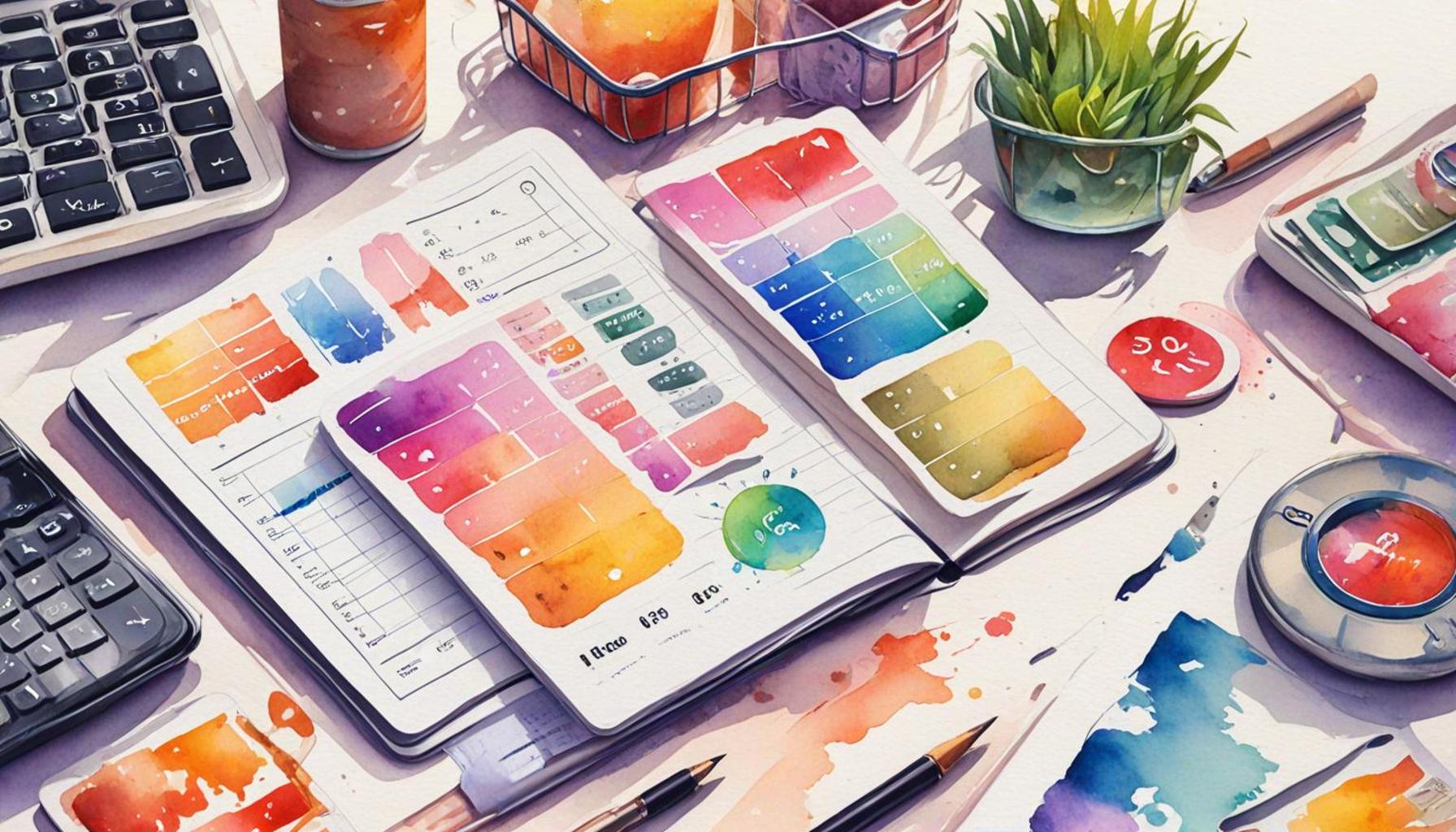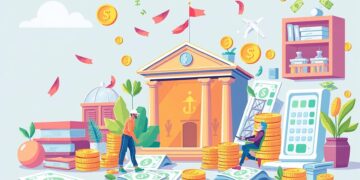Best Personal Finance Apps to Organize Your Bills

Understanding Personal Finance Apps
Managing your finances can often feel overwhelming. With bills piling up and varying due dates, it’s easy to lose track. Fortunately, there are numerous personal finance apps designed to help you stay organized and keep your budget on track. These apps can provide critical features that allow you to take charge of your financial situation.
Key Features of Finance Apps
Let’s dive deeper into some of the essential features that these financial tools offer:
- Bill reminders: Never miss a payment again with timely alerts. Many apps allow you to set reminders for any due dates, helping you avoid late fees and maintaining good credit. For example, apps like Mint and Prism will send notifications and even show you upcoming bills on their dashboard.
- Expense tracking: Knowing where your money goes each month is crucial for effective budgeting. Personal finance apps can categorize your spending, allowing you to see patterns in your expenses. For instance, you might discover that you spend more on dining out than you intended, prompting you to adjust your habits.
- Budgeting tools: Set and manage your financial goals effectively. Many apps come equipped with customizable budgeting features, like YNAB (You Need A Budget), which emphasizes a proactive approach to budgeting by assigning every dollar a job. This method encourages users to allocate their income toward needs, wants, and savings systematically.
- Document storage: Keeping important receipts and documents at your fingertips can be invaluable, especially come tax season. Apps like Expensify allow you to take photos of receipts and store them electronically, making it easier to track deductions.
Using these apps can help you gain control over your cash flow and minimize financial stress significantly. According to a recent survey, individuals using personal finance apps reported feeling more confident about their financial decisions and less financially anxious.
The Real Impact of Finance Apps
A well-chosen app not only organizes your bills but also empowers you to make informed decisions about your money. Whether you’re looking to save for a vacation, pay off debt, or simply manage your monthly expenses, the right app can make a significant difference.
For instance, if you are trying to save up for a vacation, a budgeting app can help you calculate how much you need to set aside each month. By analyzing your spending habits, these apps guide you in finding areas where you can cut back, potentially freeing up more funds for your travel plans.
In summary, personal finance apps can serve as a powerful ally in your financial journey. They can simplify the complexities of money management, helping you achieve not only financial stability but also long-term wealth goals. As we explore some of the best personal finance apps available in the United States today, consider how each feature aligns with your financial objectives.
SEE ALSO: Click here to read another article
Choosing the Right Personal Finance App for You
With a plethora of personal finance apps available, selecting the right one can be a daunting task. Each app has unique features tailored to different user needs, making it important to start by evaluating your specific financial situation and goals. Here are several factors to consider when choosing a personal finance app:
1. User Interface and Experience
The usability and design of the app are crucial. A user-friendly interface helps users navigate through their finances effortlessly. Look for apps that provide a clean layout and easy access to essential features, such as bill payment schedules and budget summaries. For example, apps like Mint feature intuitive dashboards that allow users to see their entire financial picture at a glance, making it easy to manage bills and budgets in one place.
2. Security Features
Given that personal finance apps handle sensitive information, strong security measures should be a priority. Look for apps that offer encryption and two-factor authentication to protect your data from potential breaches. This is especially vital when linking your banking and credit accounts. Apps like YNAB take security seriously and provide users with peace of mind by implementing rigorous protective measures.
3. Synchronization with Financial Institutions
Another essential feature is the ability of the app to sync with various bank accounts and credit cards. This functionality allows for real-time tracking of transactions, ensuring that you have the most accurate view of your financial status at all times. Check if the app supports all your accounts and makes it simple to update your information. Apps like Prism excel in this area, allowing users to link multiple accounts seamlessly and manage all bills in one centralized location.
4. Customization Options
Your financial situation is unique, which is why customization is important. Choose an app that allows you to tailor features according to your preferences. This could include setting personalized goals, creating custom categories for expenses, or even adjusting the frequency of bill reminders. Personal finance tools like GoodBudget offer considerable flexibility, allowing users to create envelopes for different spending categories that can be adjusted easily as financial needs change.
5. Reporting and Insights
To enhance your financial literacy, many apps provide comprehensive insights and reports on spending habits and budget adherence. This data can be immensely valuable in understanding where your money goes and how to adjust your financial strategy. Applications such as EveryDollar can generate reports that show your spending patterns, helping you to make informed choices on how to allocate your resources more effectively.
Selecting the right personal finance app can significantly improve your financial management by helping you stay informed and organized. Consider these critical factors alongside your needs to find the perfect app that aligns with your financial aspirations.
SEE ALSO: Click here to read another article
Exploring Popular Personal Finance Apps
Once you have a grasp on what to look for in a personal finance app, it’s time to explore some of the most popular options available. These apps not only help you keep track of bills but also offer various tools to enhance your overall financial health. Here are a few noteworthy personal finance apps that cater to diverse needs:
1. Mint
Mint is one of the most recognized personal finance apps, famous for its comprehensive features and user-friendly design. Not only does it provide a real-time view of your spending, but it also offers customization options for budgeting and bill tracking. With automatic bill reminders and categorization of expenses, Mint helps you stay on top of due dates. One standout feature is the ability to access your credit score for free, giving you insights into your financial health.
2. YNAB (You Need A Budget)
Ideal for those who want to take control of their budgeting, YNAB focuses on proactive money management. It operates on the principle of assigning every dollar a job, which encourages mindful spending. The app emphasizes personal accountability and includes features such as goal-setting, reporting, and financial workshops. Its unique learning approach can effectively help users build better financial habits over time, making it especially suitable for individuals looking to improve their financial literacy.
3. Prism
Prism is an excellent choice for individuals who want a centralized view of all their bills and financial accounts. This app lets you link various bank accounts and utilities, presenting a comprehensive dashboard that displays upcoming payments and account balances. With the ability to pay bills directly within the app, Prism streamlines the process to avoid late fees. It’s particularly beneficial for those juggling multiple accounts, as it helps maintain clarity and organization.
4. EveryDollar
For users who prefer a simple and straightforward approach to budgeting, EveryDollar is a great option. This app allows you to create a monthly budget quickly and easily, with a drag-and-drop feature to allocate funds to different categories. While the free version is perfectly functional, the premium version offers an automatic bank sync feature that connects your transactions directly, saving you time and providing instant insights into your spending.
5. GoodBudget
GoodBudget takes a different approach by using the envelope budgeting system, which allows users to allocate funds to specific “envelopes” for various spending categories. This method not only helps prevent overspending but also instills a sense of financial discipline. The app is compatible across multiple devices, making it easy to keep track of your budget and bills on the go. GoodBudget is perfect for those who prefer a hands-on approach to budgeting without linking their bank accounts.
6. Personal Capital
Though primarily an investment tracking tool, Personal Capital offers robust budgeting features that can aid in organizing bills effectively. Users can view all their financial accounts in one place, helping them track their net worth and understand investment performance alongside their regular expenses. The app’s budgeting tool provides a unique opportunity to visualize how your expenses fit into your larger financial picture, which is crucial for long-term planning.
Choosing the right app from this range of popular options can greatly simplify the process of managing your bills and overall financial strategy. Each app caters to different preferences and spending habits, ensuring that there is something out there for everyone looking to gain control over their finances.
CHECK OUT: Click here to explore more
Conclusion
In today’s fast-paced world, staying organized with your financial obligations is more crucial than ever. The best personal finance apps provide invaluable support for managing bills effectively, mapping out budgets, and developing strong financial habits. By leveraging the various features of apps like Mint, YNAB, Prism, EveryDollar, GoodBudget, and Personal Capital, you can create a tailored financial strategy that fits your unique lifestyle and goals.
It’s essential to consider your needs when selecting an app. For instance, if you thrive on structure and prefer visible accountability, YNAB or GoodBudget might resonate with you. On the other hand, if you value convenience and automation, an app like Prism that combines bill management with easy payment options could be best suited for you. Additionally, keep in mind that many of these apps offer free versions, allowing you to test them out and find which features you find most helpful.
Incorporating the right personal finance app into your routine can significantly enhance your ability to stay on top of bills and make informed financial decisions. By utilizing these tools, you can foster greater financial awareness, avoid costly late fees, and work towards your long-term financial goals. Embracing technology in this way not only simplifies managing your finances but can also pave the way to a more secure financial future.

Linda Carter is a writer and financial expert specializing in personal finance and financial planning. With extensive experience helping individuals achieve financial stability and make informed decisions, Linda shares her knowledge on the Take Care Garden platform. Her goal is to empower readers with practical advice and strategies for financial success.





